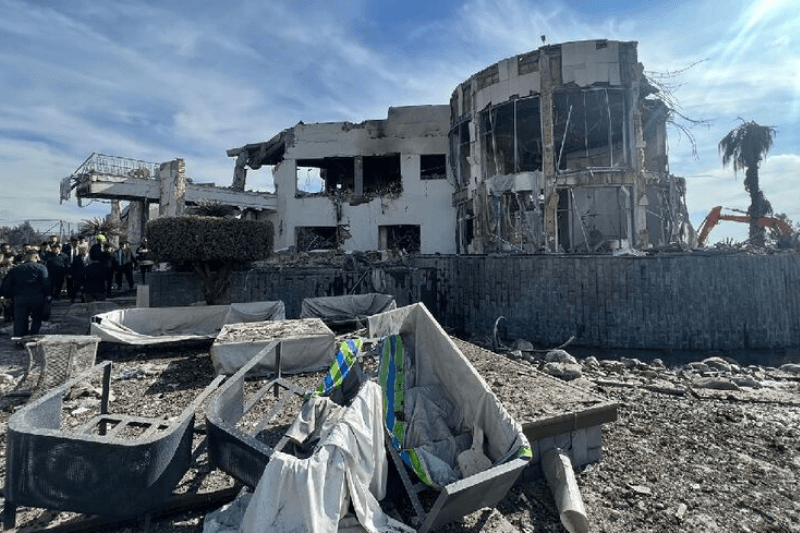
Global Repercussions: US Condemns, Iran Defends in the Aftermath
Diplomatic Tensions Escalate: Iraq Recalls Ambassador and Condemns Iranian Strikes in Irbil
In a seismic diplomatic move, Iraq has recalled its ambassador from Tehran and summoned Iran’s chargé d’affaires in Baghdad to protest against Iranian strikes on northern Iraq. The overnight strikes resulted in tragic civilian casualties, leading the Iraqi Foreign Ministry to denounce the attack as a “blatant violation of sovereignty” and a threat to regional security.
The Iranian Offensive: Missile Strikes on Irbil and Syria
Iran, citing security threats, launched missiles at what it claimed were Israeli “spy headquarters” in Irbil, the capital of Iraq’s northern Kurdish region. Simultaneously, targets linked to the Islamic State group in northern Syria were hit. The Iranian Revolutionary Guard reported launching precision ballistic missiles, alleging a connection to Mossad, the Israeli intelligence agency.
Iraq’s Response and Denial of Mossad Link
Iraq swiftly condemned the Iranian attack, emphasizing its violation of international law. Iraqi officials denied any connection between the targeted building and Mossad, asserting there was “no reason for these attacks” and demanding a response to such aggression.
Regional Implications and Ongoing Tensions
Missile strikes in Irbil and Syria come amid heightened Middle East tensions, linked to the conflict’s spillover from the Gaza war. The Islamic State group’s claim of responsibility for earlier suicide bombings complicates the regional landscape.
Keep Reading
Human Toll: Civilian Casualties and Tragic Losses
Tragically, the missile strikes resulted in civilian casualties, including the death of prominent businessman Peshraw Dizayi and his family in Irbil. The human impact raises questions about the necessity and proportionality of the offensive.
International Reactions: US Condemnation and Iran’s Justification
The United States swiftly condemned “Iran’s reckless missile strikes,” prioritizing stability in Iraq. Iran’s Foreign Ministry justified the strikes as a “resolute defense of the country’s sovereignty,” part of its strategy against perceived threats.
Demonstrations in Irbil: Public Outcry Against Attacks
Hundreds protested in Irbil against the attacks, highlighting local dissatisfaction with disruptive actions claiming innocent victims.
The situation remains fluid, with uncertainties about Iran’s targets and potential repercussions on regional stability. The international community monitors developments, wary of further escalations.
In conclusion, Iran’s missile strikes in Irbil intensify concerns about Middle East stability. Human toll, regional implications, and international responses add layers to the geopolitical landscape. Diplomatic solutions and de-escalation become paramount.




